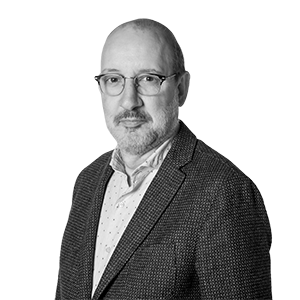

Looking at rental and home purchase prices, and seeing how salaries are clearly being outpaced by the rising cost of living, it's no surprise that a candidate who campaigned on slogans like "a city we can afford" won the New York City mayoral election.
But I fear that the jubilation shown in most media outlets over Mayor Mamdani's victory stems from the fact that it represents a defeat for Trump rather than a very serious warning of where we are: capitalism continues to create wealth, but it distributes it less and less—or much worse—than decades ago. Everyone works, but there are more and more poor people. Social exclusion figures are growing. And governments that aspire to correct the situation through redistribution via taxes continue to pick the pockets of what remains of the impoverished middle class, but they don't show the same zeal when it comes to confronting corporations that do nothing but announce multimillion-dollar profits. If more aid is needed every year, in the end, those receiving aid will outnumber those providing it, and the state won't be able to sustain it.
Under a macroeconomic model of growth, there are increasingly more stories of precariousness and a lack of future prospects, especially among young people, for whom the idea of meritocracy is beginning to feel like a bad joke. It's not that they can't afford a city, but that they can't afford a life. And this is devastating for everyone.
The system has reached its breaking point, and with its unstoppable march toward the concentration of wealth, it threatens to drag down the democracy that binds us through the social contract. This was discussed yesterday in a debate with young people at the Autumn Event organized by the family of Manuel Carrasco y Formiguera. Beware of what Cáritas has called "the society of unease."
